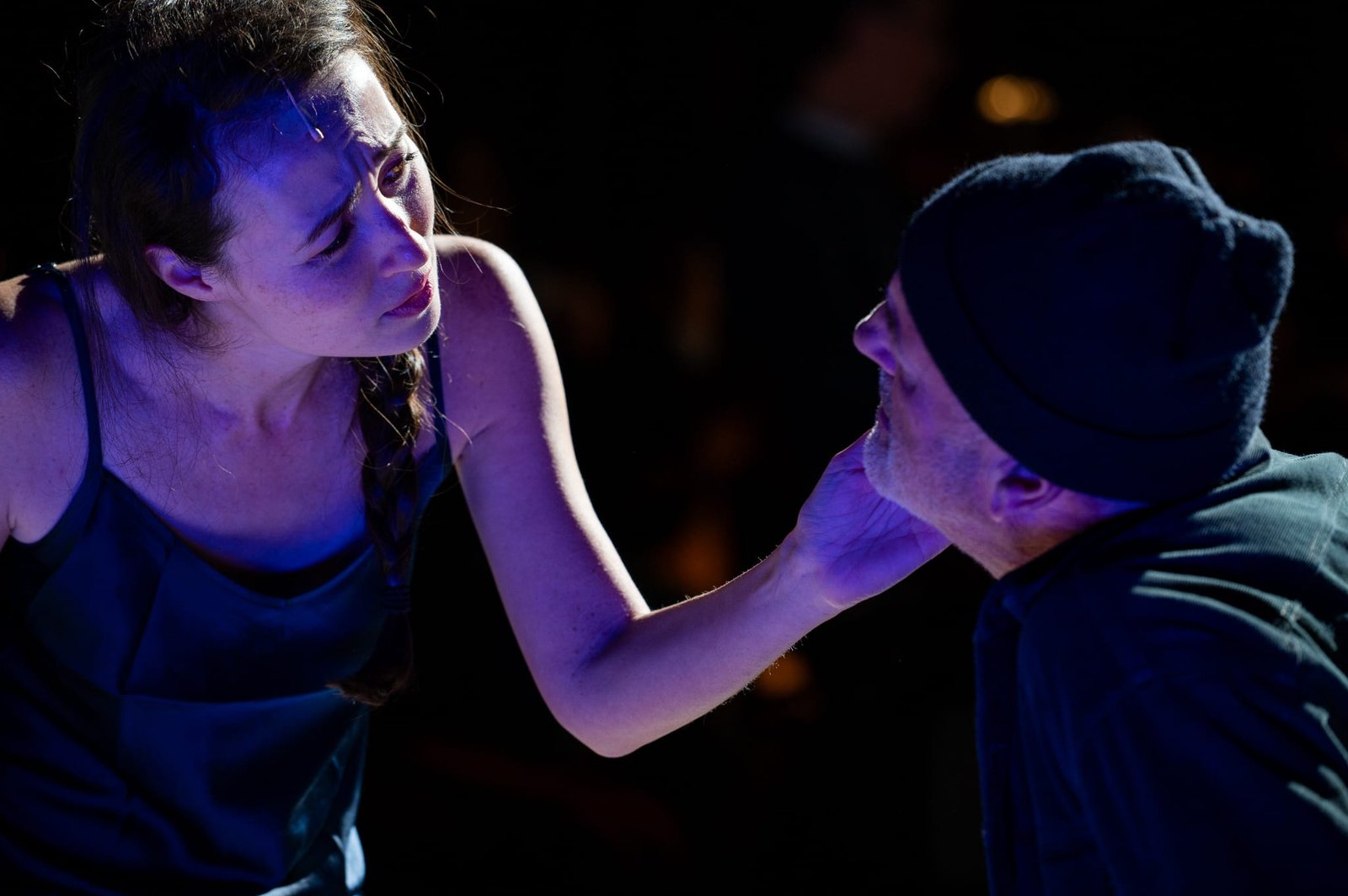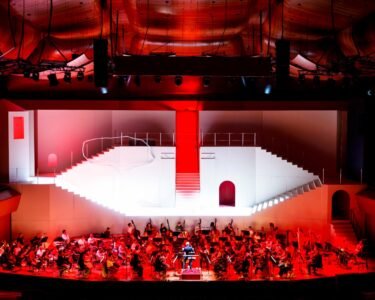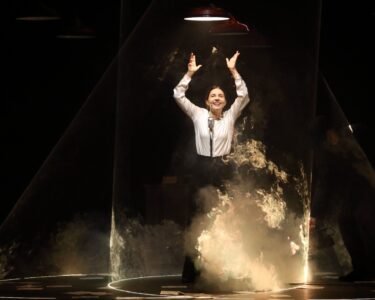The most important work of Kaija Saariaho, directed by Ernest Martinez Izquierdo, directed by Peter Sellars, proposes a story archetypal that speaks to our day. For To remember that evil is not genetic and good Is the greatest act of courage. Thus the Rome Opera House affirms its dual vocation, between contemporaneity and tradition
By Rosalba Panzieri
"I want to write an opera about a mother, because in the history of opera there has never been a play about a mother written by a woman." This is how Kaija Saariaho confided to director Peter Sellars the profound desire that gave birth to "Adriana Mater," a powerful and intimate opera, staged for the first time in Italy at the Teatro dell'Opera in Rome Oct. 9-16, 2025. Kaija Saariaho,a Finnish composer who died in 2023, was one of the most influential artists in contemporary music, awarded the Golden Lion in 2021 by the Biennale Musica. "Adriana Mater" is, in scope and duration, her most impressive work, and her music rises like a cathedral from an inspiration that is as simple as it is essential: two heartbeats pulsating within one body during motherhood.
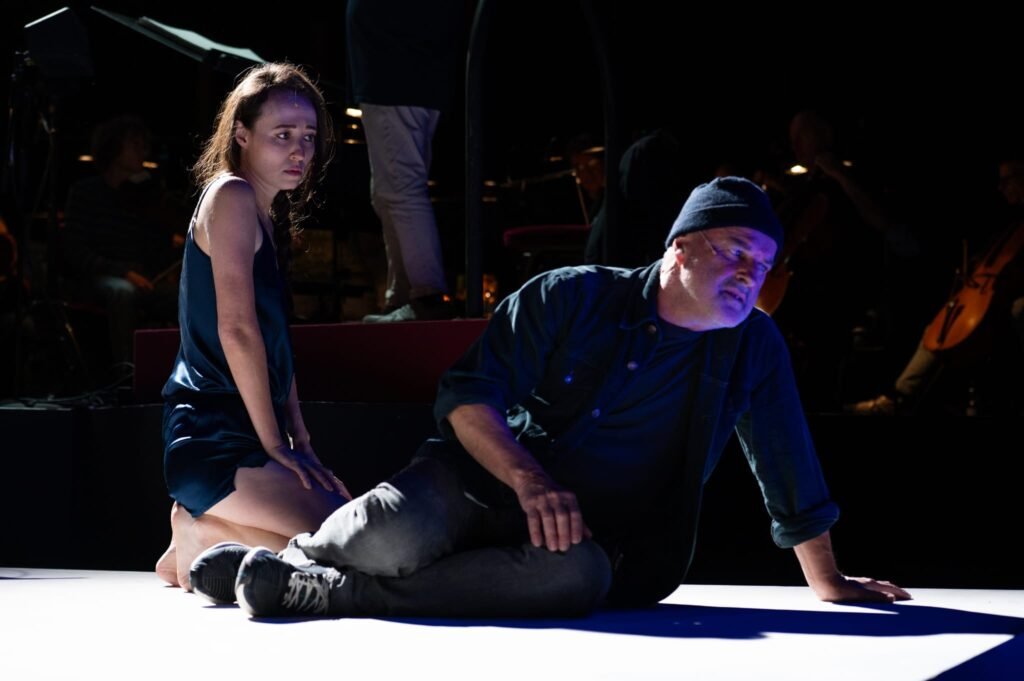
Two hearts beating in one body
The play deals with the theme of motherhood in a wartime context, where Adriana, the protagonist, chooses to carry a pregnancy that is the result of rape by Tsargo, a soldier addicted to violence and alcohol. Despite her sister Refka's attempts to dissuade her, Adriana decides to heal with a vital act, giving life, the deadly act she suffered. Her son, Yonas, grows up, unaware, with a shadow in his soul, until the moment of deflagrating truth. Adriana, experiences the conflict between love and fear, between the desire to protect and the fear that evil will be transmitted like a silent virus, wondering if it is possible to inherit violence.
It will be the encounter between father and son that will resolve the issue. "The polyphony generated by the simultaneous beating of two hearts," the composer wrote, "became the constant on the musical plane. These different rhythms formed the matrices of the musical composition, with which I musically connoted the different characters and their time." The opera, in two acts, unfolds in seven musical pictures, which propel the narrative into a breathtaking tension that gives no respite or respite. It is an endless fall, from one terror to another, clinging to the raft of hope. The internal contradictions of the characters, the different feelings that run through them, result in a contrast, which speaks to the present.
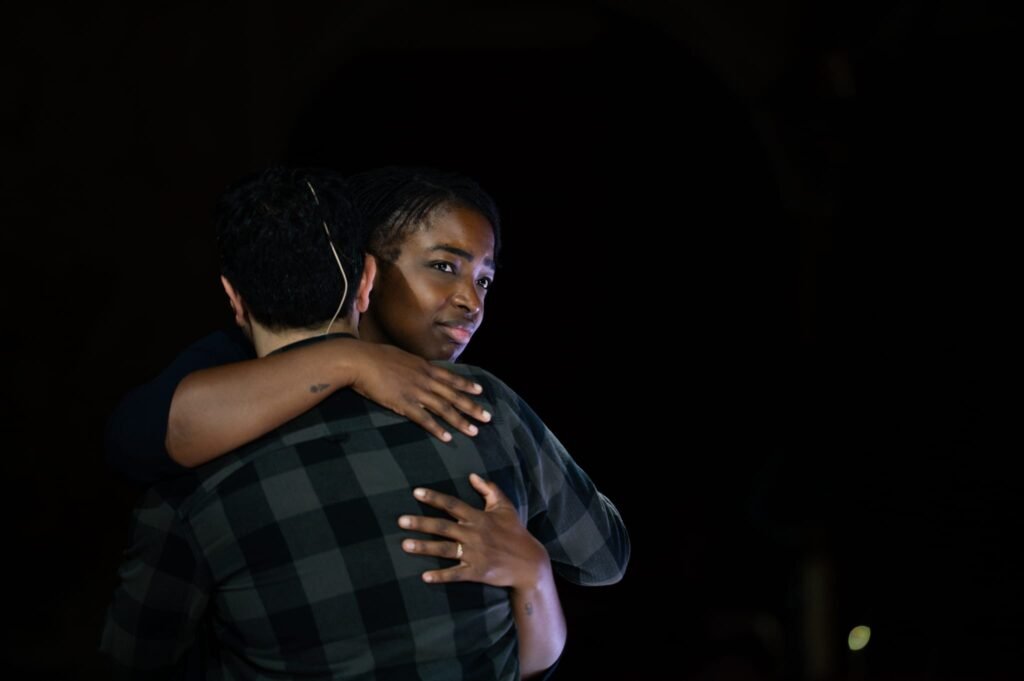
The challenge of hope beyond the horror
"Adriana Mater" is a work of that investigates human nature more deeply than is usual, holds the passage of time to account, leaving a space of 18 years between the first and second acts. It poses, most of all, a capital question: does blood have its own law to obey or is the love received stronger? Adriana asks herself, "Is it a stranger who inhabits me? In his veins run, mingled, the blood of the victim and the executioner. Will my child be Cain or will it be Abel?" Today, tragically, this question concerns us all. Immersed in scenarios of war, addicted to violence, victims of vicious logic and acts, we are called to courageously choose to heal rather than destroy. And the music woven by the composer, builds with extraordinary strength, using constant counterpoint, the bitter inner battle of the characters, which dissolves only in the harmonization of the finale.
Words that tell abyss and hope
The libretto, in French, was created by journalist Amin Maalouf, a longtime Saariaho contributor. Amin Maalouf's dramaturgy delves into female intimacy, the radical choice to generate life even when the body has been violated. If the composer started from the polyphony of the heartbeat, the playwright kept the violence of war as a horizon. Maalouf delivers a libretto of rare dramatic force, in which the acme of feelings finds a verbal force assonant with Greek tragedy.
Orchestra and Choir on stage For a work of resurrection
Peter Sellars, visionary director and fraternal friend of the composer, signs a new staging that recalls, in turn, the structure of Greek tragedy: four characters, a moral tension that is consumed almost in the word and the gaze, reducing gesture to the essential. But the disruptive effect, even to the eye, is the Orchestra and Chorus, conducted by Ciro Visco, on stage.
On the podium, Ernest Martínez Izquierdo, Saariaho's longtime collaborator, leads a cast that has already won a Grammy Award for recording the opera in San Francisco. Fleur Barron as Adriana, Axelle Fanyo as Refka, Nicholas Phan as Yonas, and Christopher Purves as Tsargo appeared equally credible and excellent in vocal performance.
From a technical point of view, while the overall performance is excellent, the music connotes itself as the true protagonist of the staging.
Salvation instead of revenge
At a time when war is once again knocking on the doors of Europe, Adriana Mater urgently questions us: what does it mean to be a mother in a time of violence? And above all, can one educate for peace those born of war?
When Yonas fails to carry out his purpose of revenge against his executioner father and spares his life, Adriana will say words that should be a beacon for each of us: "That man deserved to die, but you, my son, did not deserve to kill. We are not avenged, but we are saved."


